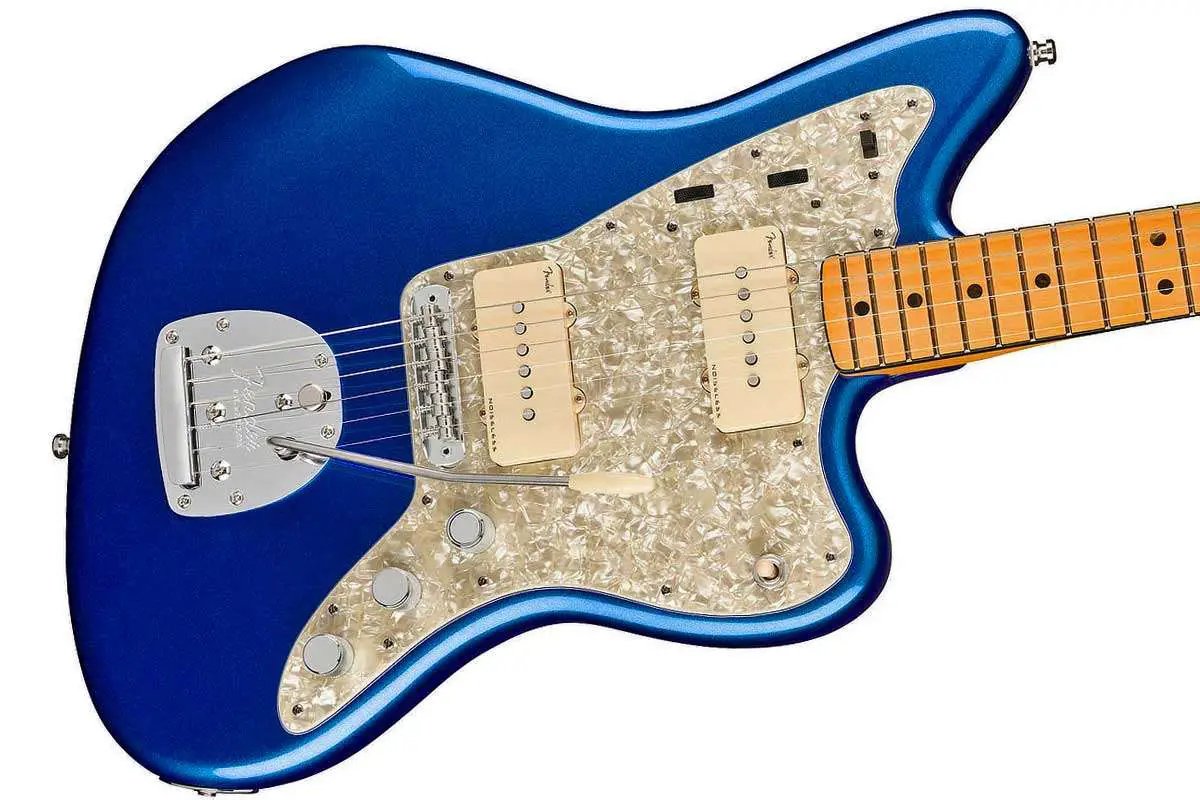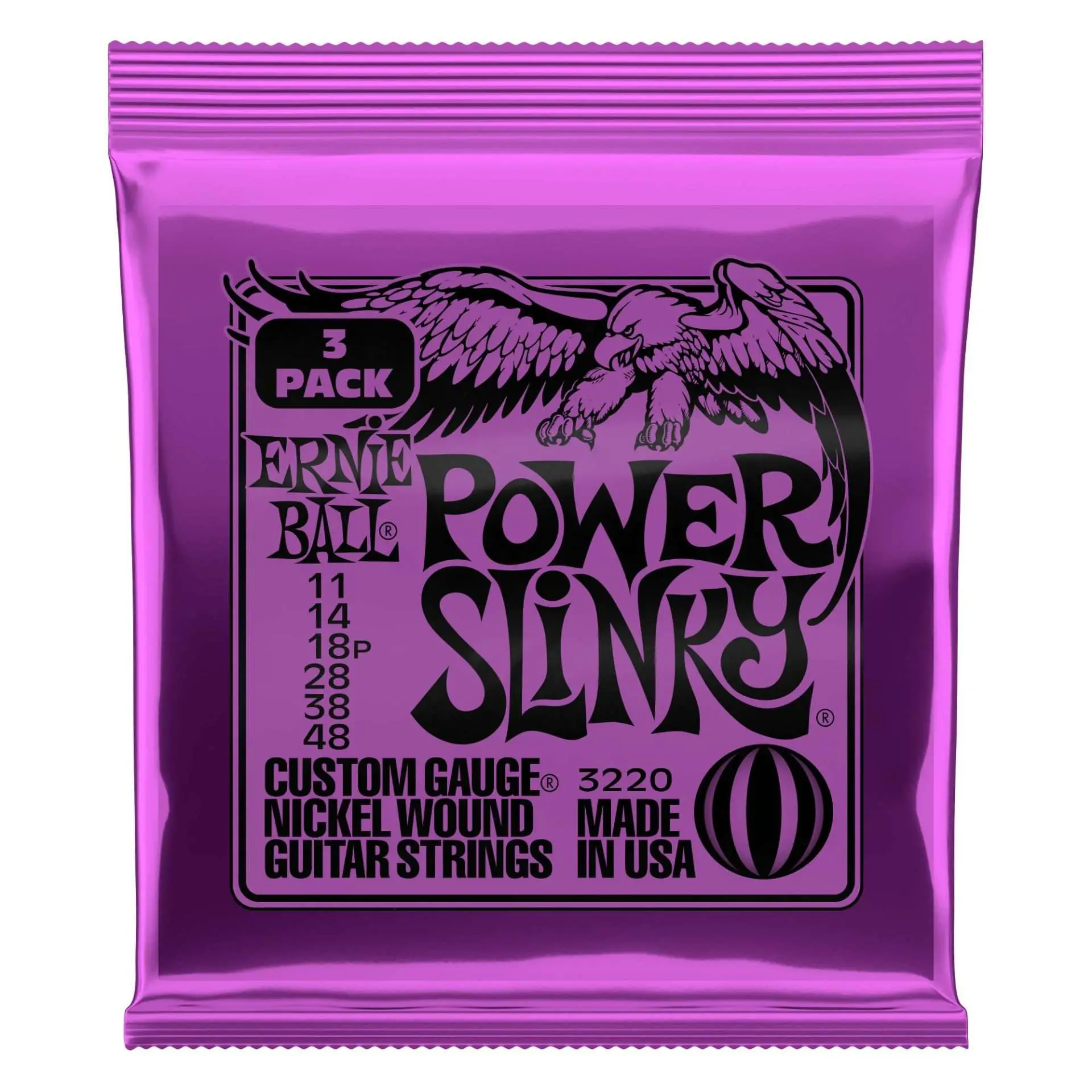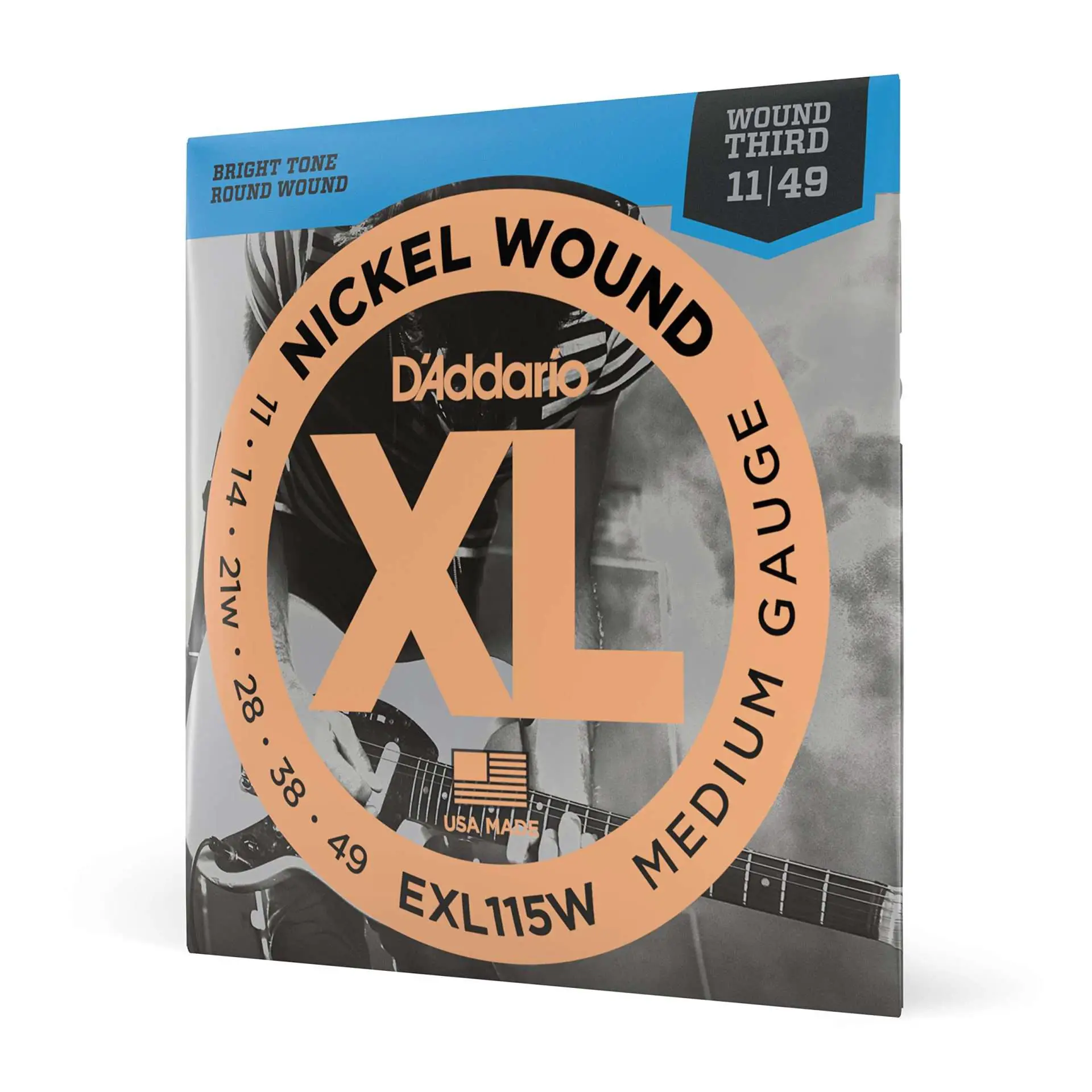When choosing the best strings for Jazzmaster guitars, there’s a couple of important things to consider that can impact the sound. Jazzmasters, known for their unique design, adaptable electronics, and floating tremolo system, have maintained their appeal since their debut in the late 1950s. Initially targeted at jazz guitarists, these instruments have surpassed genre limitations and are now beloved by diverse musicians for their lush, resonant tones and ease of play.
Given their design, Jazzmasters require a particular set of strings to perform optimally. For instance, their longer scale length & tremolo system demand strings that provide enough tension to maintain tuning stability & intonation. Moreover, the choice of string gauge and material can accentuate or dampen the inherent qualities of the guitar’s tone.
When shopping for strings, there are a few critical factors to consider. String gauge is of paramount importance, affecting playability, tone, and the feel of the instrument. Heavier gauges offer more tension, yielding a fuller tone and increased volume, whereas lighter gauges allow for easier bending and playability at the expense of some tonal fullness. Additionally, the construction material of the strings, typically nickel or stainless steel for electric guitars, can impact the brightness and sustain of the notes played.
We understand the nuances that come with picking the correct strings for a Jazzmaster and have thoroughly examined numerous options to identify the best match for this distinctive instrument. Balancing tension, playability, and tonal quality requires a thoughtful approach to string selection, and we’ll explore that in more detail to help you make an informed decision.

Top Jazzmaster Strings
We’ve meticulously evaluated a wide array of strings that bring out the classic warmth and dynamic range the Jazzmaster is known for. Our selection provides options that enhance playability, tonal clarity, and longevity, essential for both studio recording and live performances. Whether you’re a jazz aficionado or a versatile musician, these choices balance quality and performance, ensuring your Jazzmaster sounds its best.
Fender Original 150 Strings

If you’re looking to capture that classic rock sound, these strings are an excellent addition to your Jazzmaster.
Pros
- Offers a warm, vintage tone
- Durable with minimal finger noise
- Made in the USA with high-quality materials
Cons
- May not suit those looking for a modern sound
- Slightly higher price point than some competitors
- Pure nickel can feel different to those used to nickel-plated
Our first encounter with the Fender Original 150 Strings revealed their true potential. Their light to medium tension makes them especially suitable for jazz and classic rock renditions. These strings resonate with a rich, vintage timbre that’s both melodic and soulful, a trait we’ve come to expect from Fender’s pure nickel design.
Our Jazzmaster has never sounded better. The comfort during play is immediate, and the mellow warmth radiating from each note reminds us of the iconic sounds that shaped guitar history. It’s joyous to feel and hear the difference after restringing what feels like countless guitars over the years.
We constantly meet beginners on their musical journey, and we always recommend starting with strings that won’t deter their progress—Fender Original 150 Strings are exactly that. With an easy-on-the-fingers feel and reliable tuning stability, they make the learning curve a more pleasant experience. It’s reassuring to offer a product that we’ve personally tested and believe in wholeheartedly.
Ernie Ball Power Slinky

If you’re after a set of strings that balance tone and durability, the Ernie Ball Power Pack offers a beefy sound with excellent longevity.
Pros
- Chunky, full tone ideal for rock and blues
- Extended lifespan with special Element Shield Packaging
- Used and trusted by renowned guitarists
Cons
- Might be too thick for players accustomed to lighter gauges
- Slightly higher tension can be tough on the fingers
- Not the best choice for genres requiring a brighter, twangy sound
We recently strung up a Jazzmaster with the Ernie Ball Power Slinky pack and the difference was clear off the bat. Right away, chords had a meatier sound and single notes sang with sustain, a testament to their solid construction. For those of us who enjoy laying into rhythm parts, these nickel wound strings provided the perfect amount of resistance.
Diving into licks and riffs, the durability turned out to be a highlight. Even after rigorous sessions of bends and vibrato, the Power Slinkys held their tune admirably. However, for those with a lighter touch or a preference for nimble lead work, the jump to an 11-gauge set might take some getting used to.
Longevity of strings is vital, and the Ernie Ball Slinkys didn’t disappoint. Weeks of playing and they still sounded as fresh as when they were first installed, maintaining their bright and balanced tone. This can be chalked up to the innovative packaging, which definitely seemed to help in keeping corrosion at bay.
In summary, the Ernie Ball Power Slinky Nickel Wound strings blend a robust tone with commendable staying power, making them a solid choice for players craving a hearty sound and reliable performance.
D’Addario Medium Wound Third

If you’re seeking strings that broaden your tonal palette and provide a reliable performance, the D’Addario Medium Wound Third set should be on your radar.
Pros
- Warm, well-rounded tones
- Good string tension for rhythm players
- Earn rewards with Players Circle points
Cons
- Bending notes requires more effort
- May not suit players who prefer very light gauges
- The focused tone may be too specific for some genres
Having just strung up my Jazzmaster with the D’Addario Medium Wound Third strings, the guitar’s voice has noticeably changed. These strings lend a warm and dark character to the instrument, which complements complex chords and smooth playing styles. The increased gauge offers a solid feel, reassuring during intense playing sessions, and the wound third string provides a full-bodied sound, especially welcomed by rhythm guitarists.
When I took these strings for a spin, their versatility truly came through. The nickel plating ensures they respond well to a variety of musical genres. However, these strings shine brightest in jazz and blues settings where expressive tone is paramount. I applaud how they mellow out the highs without sacrificing clarity, a feat lesser strings struggle with.
For those accustomed to light gauges, the Medium Wound Third set may present a bit of a learning curve. Note bending requires more finger strength, but the payoff is a rich vibrato and sustain that makes it worthwhile. While this set won’t cater to every guitarists’ taste, particularly those who thrive on whammy bar theatrics, the durability and tuning stability are commendable.
In summation, as we strung our instruments with the trusty D’Addario strings, we found the tonal transformation to be both surprising and satisfying. They possess an old-school charm not often found in modern string sets and should be seriously considered by those yearning for robustness and resonance in their guitar sound.
Elixir Electric Light/Heavy

If you’re in the market for a set of strings that will give your Jazzmaster a long-lasting, vibrant tone, we confidently recommend these.
Pros
- Remarkable lifespan due to NANOWEB Coating
- Resistant to corrosion and debris
- Consistent tuning stability within various climates
Cons
- Higher price point than uncoated strings
- Slightly different feel that may not suit all players
- Coating can wear out in patches over time
Coated strings, like the Elixir Electric Light/Heavy we’ve strummed recently, are a top choice amongst players looking for longevity in tone and protection from the elements. These strings are known for their vibrant sound that stays consistent through many sessions.
We appreciate the impressive corrosion resistance of these strings. Whether in a humid rehearsal room or during a sweaty gig, the strings resisted the elements, maintaining their tone and feel. The NANOWEB Coating truly sets them apart from traditional strings.
Their tuning stability is another aspect we can’t ignore. Across multiple gigs and practice sessions, these strings stayed in tune, saving us precious time and frustration. And with various gauges available, finding the right fit for our Jazzmaster and playing style was a breeze.
In our experience, the Elixir Electric Light/Heavy deliver a bright and punchy sound, providing the Jazzmaster the lively kick it deserves. We’re sure they can live up to the demands of any Jazzmaster enthusiast looking for a reliable set of strings.
Buying Guide
Understanding Jazzmaster String Needs
When selecting strings for a Jazzmaster, consider the unique string length requirement from bridge to tailpiece and the extended distance to the tuning pegs. Our preference leans towards longer strings, ensuring the high E string is not overly taut and minimizing the need to clip excess length.
Gauge Selection
Opting for the right gauge is crucial. A Jazzmaster benefits from a bit more tension due to its longer scale length and floating tremolo design. Heavier gauges provide the necessary tension, while lighter gauges may not interact as effectively with the tremolo system.
| String Gauge | Ease of Bends | Sustain |
|---|---|---|
| 09 | High | lower |
| 10 | Moderate | Moderate |
| 11 | Lower | High |
Resistance and Playability
Strings with a medium gauge (.011 to .050) combine the right resistance with playability. Heavier gauge strings also mitigate excessive breakage, a common issue with older Jazzmasters and certain bridge designs.
Consistency and Durability
Strings must be consistent and durable, resistant to breakage at the tailpiece, and stable in maintaining tune.
In sum, we recommend using medium gauge strings for a balanced feel, optimizing the unique mechanics of the Jazzmaster’s tremolo system and scale length. It’s about finding the right tension that works harmoniously with your playing style and the guitar’s design, ensuring a stable, responsive, and dynamic playing experience.
